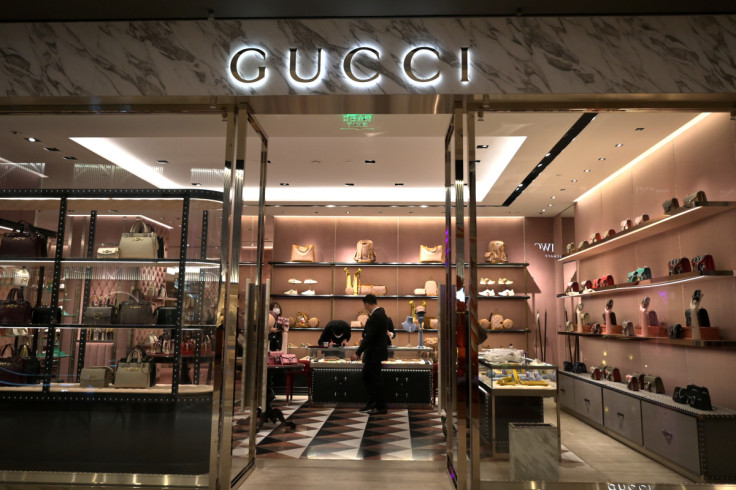We Need To Talk About Gucci: Kering Sets Plan To Boost Brand In China

Kering will outline plans to reinvigorate sales at its star label Gucci this week, throwing the spotlight on its approach in China - a key growth driver for leading luxury houses that has been hit by its new COVID lockdowns.
Investors are closely watching the Chinese market, set to become the biggest for the luxury sector by 2025, to gauge how much the strict pandemic containment measures since March have impacted demand for high end fashion and accessories.
Kering has recruited former Tiffany executive Laurent Cathala to run Chinese operations for Gucci, which provides more than half the group's total's revenue.
Cathala is expected to bolster local teams, giving them control of marketing and advertising activities, analysts said, an unusual move in an industry where strategy is normally dictated by Europe-based executives in Paris or Milan.
Empowering local teams is key at a time when knowing your customer and understanding their culture is becoming increasingly important, according to Leaf Greener, a luxury brand consultant based in Shanghai.
"The brands haven't paid enough attention to how to build up this cultural bridge. The sooner they start, the better," Greener said. "It's not just about using celebrities to sell a lot of product anymore."
Kering, which makes its investor presentation on Wednesday and Thursday, declined to comment.
China's sputtering economy has a lot riding on its consumers, who are just now emerging from lockdowns in Shanghai and other big cities. Analysts say government stimulus measures may not be enough to drive a recovery in consumer spending. []
Gucci suffered more than rivals like LVMH-owned Louis Vuitton or Hermes in the first quarter of the year due to the restrictions.
Kering shares have fallen 26% since the beginning of the year compared to a 16% decline for spirits-to-jewellery conglomerate LVMH, which is seen as more resilient to economic downturns as its business is more diversified.
BRAND FUNDAMENTALS
Chief Financial Officer Jean-Marc Duplaix said Gucci's underperformance was partly because the brand is more exposed to mainland China than some competitors. Barclays estimates the label generates around 35% of annual sales in China, compared to 27% for LVMH's fashion and leather goods division and 26% for Hermes.
With restrictions easing this month, investors will be keen to hear how Kering will seek to regain lost ground.
"Beyond current trading, we think investors also need reassurance on the brand's fundamentals", Barclays analysts said in a note.
Under CEO Marco Bizzarri and creative director Alessandro Michele, Gucci's profits increased nearly four-fold and its revenue almost trebled in 2015-19. Much of the brand's success up until recently relied on well-heeled, young Chinese shoppers traveling to Europe's fashion capitals and snapping up Michele's quirky, flamboyant designs.
But growth slowed as international travel froze during the pandemic, fuelling questions over what Kering might do to boost sales and reduce its dependence on the label - including potentially through M&A deals. Gucci has branched out into make-up and homeware to widen its appeal and also launched a collaboration with Adidas.
Analysts at Jefferies are not expecting a quick return to growth rates in China seen in the second half of last year, citing muted footfall in cities like Shenzhen and Shenyang earlier in the year after lockdown measures eased.
They expect luxury sales to drop 15% in the country over the first half, followed by growth of around 11% in the second half.
Kering will also speak about its Yves Saint Laurent brand and its jewelry and glasses businesses at its 'Capital Markets Day'.
Copyright Thomson Reuters. All rights reserved.





















